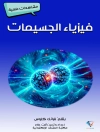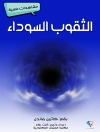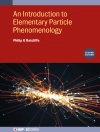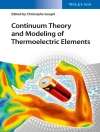Practical Collider Physics provides a self-contained summary of all of the necessary theoretical, experimental and statistical knowledge required to analyse hadron collider data, focussing on the skills and techniques that are rarely covered in standard textbooks. It covers topics including parton distribution functions, resummation, parton showers, hadronisation, and the underlying event and jet algorithms, all of which are vital for understanding the form and function of Monte Carlo generators. A detailed overview of the ATLAS and CMS detectors is also provided, along with their object-reconstruction algorithms, followed by a pedagogical introduction to computing and data-processing approaches, data-analysis basics, and detailed methods for high-precision measurements and particle searches. This book is appropriate for honours-level undergraduates and masters students, as well as supporting taught-course and practical aspects of a Ph D in particle physics.
Key Features
- Provides a detailed reference on current LHC analysis techniques
- Covers all of the necessary theoretical, experimental and statistical knowledge required to perform a complete hadron collider data analysis
- A unique collaboration between particle experimentalists and theorists
- Covers complex topics at a level that makes it accessible to final year undergraduate students
Содержание
Part I: Theory and methods for hadron colliders
Chapter 1: Introduction
Chapter 2: Quantum field theory for hadron colliders
Chapter 3: From theory to experiment
Chapter 4: Beyond the Standard Model
Chapter 5: Statistics for collider physics
Part II: Experimental physics at hadron colliders
Chapter 6: Detecting and reconstructing particles at hadron colliders
Chapter 7: Computing and data processing
Chapter 8: Data analysis basics
Chapter 9: Resonance searches
Chapter 10: Semi-invisible particle searches
Chapter 11: High-precision measurements
Chapter 12: Analysis preservation and reinterpretation
Chapter 13: Outlook
Part III: Appendix
A: Useful relative formulae
Об авторе
Martin White is a Professor and Deputy Dean of Research in the Faculty of Sciences at the University of Adelaide, where he leads a group in particle astrophysics phenomenology, with connections to machine learning and novel data science techniques in Bayesian and frequentist inference. He teaches physics at undergraduate and masters level, and has developed a new interdisciplinary curriculum in data science.
Andy Buckley is a Senior Lecturer in particle physics in the School of Physics & Astronomy at the University of Glasgow. Most of his work is on experimental studies with the ATLAS experiment, part of the Large Hadron Collider at the CERN lab in Geneva. He also works with theorists on modelling of hadron collisions, and on ways of constraining the prospective models of new physics that they come up with.
Chris White: Chris White is a Reader in Theoretical Physics at Queen Mary University of London, where he lectures in particle physics theory. He has worked on various aspects of collider physics, including Monte Carlo simulation, the description of low momentum (“soft”) radiation in QCD, and the behaviour of the top-quark and Higgs bosons. In recent years, he has studied new relationships between theories like QCD, and quantum gravity.












